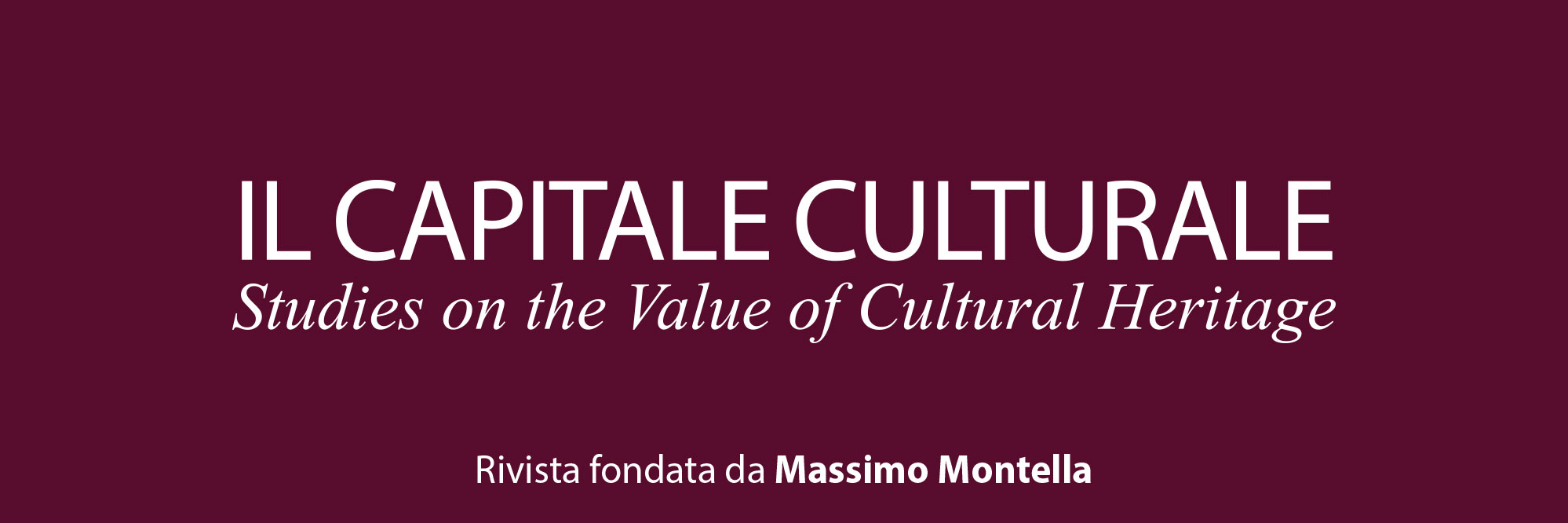Equity, inclusion and feminist pedagogies
Downloads
Pubblicato
Fascicolo
Sezione
Licenza
Tutti i materiali pubblicati sono coperti da copyright, mantenuto dall'Università di Macerata che ne supporta finanziariamente e tecnicamente la pubblicazione.
La licenza adottata è la Creative Commons - Attribuzione/Condividi allo stesso modo. Ovvero, gli autori che pubblicano su questa rivista accettano le seguenti condizioni:
- Gli autori mantengono i diritti sulla loro opera e cedono alla rivista il diritto di prima pubblicazione dell'opera, contemporaneamente licenziata sotto una Licenza Creative Commons - Attribuzione che permette ad altri di condividere l'opera indicando la paternità intellettuale e la prima pubblicazione su questa rivista.
- Gli autori possono aderire ad altri accordi di licenza non esclusiva per la distribuzione della versione dell'opera pubblicata (es. depositarla in un archivio istituzionale o pubblicarla in una monografia), a patto di indicare che la prima pubblicazione è avvenuta su questa rivista.
- Gli autori possono diffondere la loro opera online (es. in repository istituzionali o nel loro sito web) prima e durante il processo di submission, poiché può portare a scambi produttivi e aumentare le citazioni dell'opera pubblicata.
DOI:
https://doi.org/10.13138/2039-2362/3143Abstract
This paper describes and expands on the contributions the research team at Technological University Dublin have made to the DICO Digital Career Stories Erasmus+ project from March 2021 through February 2023. This paper examines the TU Dublin presentation of specific Fine Art research methods and technical and practical tools, as a unique way to open these discussions around ethical teaching with regards to access, technology, gender, class, ethnic and racial diversity. This paper looks at some of the specific tools and methods common to fine art education and practice in the points of sharing sessions to ask how lecturing staff can deliver careers learning in the creative arts that is considerate and sensitive to the unique challenges that are presented in terms of equity and inclusion in third level creative arts education and careers stories creation.
Riferimenti bibliografici
Ahmed S. (2010), Happy Objects, in The affect theory reader, edited by M. Gregg, G.J. Seigworth, Durham: Duke University Press, pp. 29-51.
Ahmed S. (2014), The Cultural Politics of Emotion, Edimburgh: Edinburgh University Press.
Braidotti R., Bozalek V., Shefer T., Zembylas M. (2018), Socially Just Pedagogies: Posthumanist, Feminist and Materialist Perspectives in Higher Education, London: Bloomsbury Academic.
Deffenbache K.A. (1980), Eyewitness accuracy and confidence: can we infer anything about their relationships?, «Law and human behavior», n. 4, pp. 243-260.
Le Guin U.K. (2019), The Carrier Bag Theory of Fiction, Ignota.
Puig De La Bellacasa M. (2017), Matters of Care. Speculative Ethics in More than Human Worlds Minnesota: University of Minnesota Press.
Schöneich F., edited by (2022), Lawrence Abu Hamdan. Dirty Evidence, Milano: Lenz Press.




